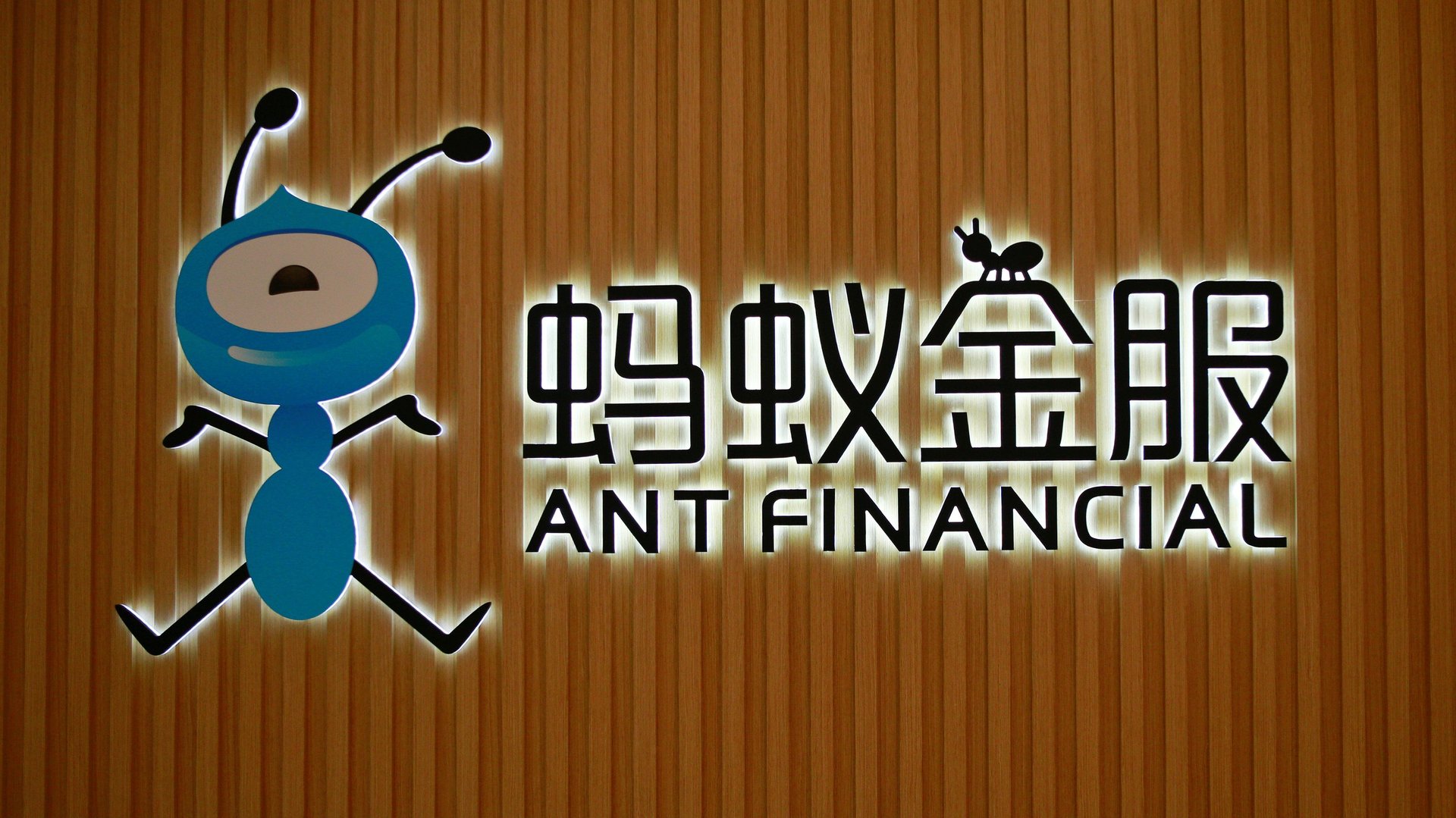The world’s most valuable fintech finally explains how much money it makes
Ant Group, the Chinese fintech giant owned by Alibaba, aims to achieve a market value of more than $200 billion when it goes public. Its IPO filings in Hong Kong and Shanghai are finally giving the world a look at the numbers behind that goal.


Ant Group, the Chinese fintech giant owned by Alibaba, aims to achieve a market value of more than $200 billion when it goes public. Its IPO filings in Hong Kong and Shanghai are finally giving the world a look at the numbers behind that goal.
The fintech company, which owns the Alipay payments platform, aims to raise more than $20 billion, or even to surpass Saudi Aramco’s $29 billion IPO last year. Some investors in the company are reportedly looking at a valuation of around $300 billion (paywall)—or more than 100 times its net profit of $2.6 billion in 2019.
This year, Ant earned a net profit of $3 billion in the first six months of the year alone—a jump of more than 1,000% compared with the first six months last year. Its revenues of 72.5 billion yuan ($10.5 billion) came primarily from digital payments and from providing technology to financial institutions such as investment firms, insurers and banks, according to the filings posted in Hong Kong and on Shanghai’s tech-focused STAR board.
As a private company, the operator of China’s largest mobile payments tool Alipay, which has over 1 billon users globally, needed to reveal little about how much money it makes and from which parts of its business. Instead, analysts made educated guesses, calculating its profits from the royalty fees it paid Alibaba.
Ant’s revenues and profits are similar to US payment firm PayPal’s last year, which had 305 million active users as of the last three months of 2019, and has a market cap of about $230 billion. Traditional financial institutions such as Bank of America, which last year posted a profit of $27 billion (pdf, page 40), have market caps in far more humble multiples of their earnings.
Apart from its enormous size, Ant’s money-making ability is also due to the benefits that come from being part of the Alibaba ecosystem, since it is the default payment option on Alibaba’s e-commerce and food delivery platforms. Still, its earnings from payment transactions are giving way to those from selling technology services to other financial institutions, which now make up more than 60% of its revenues.
Ant, which was named because of its aim to serve the “little guys,” was established in 2014 to host Alipay, created by Alibaba as its default online payments system with about 300 million users at the time. The entity was set up under the control of Jack Ma, Alibaba’s founder and former CEO, who retains “ultimate control” of Ant, according to the filings. Since then, the company has evolved from mainly operating Alipay to providing things like consumer loans, insurance, online banking credit assessment service, to running one of the world’s largest money market funds.
Ant’s IPOs come as Chinese tech champions, which used to flock to the US to raise capital, face greater scrutiny from US officials, who want the companies to meet US financial rules if they’re going to raise capital there. The company cited “a deterioration in the relationship between China and the US” as a risk factor that could lead to increasing regulatory challenges for Chinese tech companies, including Ant and Alibaba. US president Donald Trump, who has threatened to ban Chinese apps including TikTok and WeChat, said recently that he was thinking about exerting similar pressure on other Chinese tech firms, such as Alibaba.